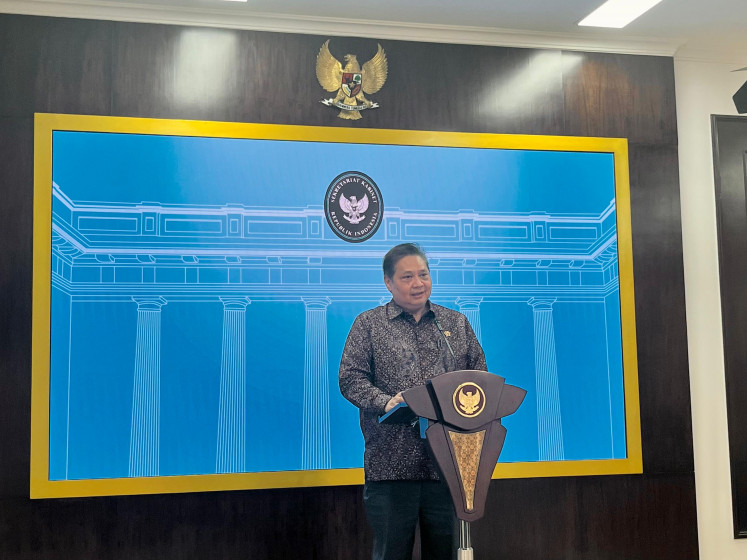New billboard tax system enriching city, hurting advertisers
Advertisers are in an uproar over a new tax system on billboard advertisements imposed last month by the city administration that has seen rates go up as much as fivefold
Change text size
Gift Premium Articles
to Anyone

A
dvertisers are in an uproar over a new tax system on billboard advertisements imposed last month by the city administration that has seen rates go up as much as fivefold.
Gubernatorial Decree No.27/2014 requires billboard agencies to pay tax based on the value of contracts with advertisers, replacing the old system under which the tax rate on a billboard varied depending on its location in the city.
Tax Agency counseling section head Arif Susilo said that with the new arrangement, the city aimed to increase tax revenue from billboards by 336 percent from Rp 550 billion (US$47,573,735) last year to Rp 2.4 trillion this year.
He said that to enforce the new decree, the agency had issued supplemental rulings through Tax Agency letter of decision No.532/2014 on the setting of basic standards for contract values.
Meanwhile, the Association of Indonesian Advertising Corporations (APPINA) chairman Sancoyo Antarikso said recently the new tax system had made the cost of advertising via billboard too high and would thus force corporations to revise their marketing strategies.
According to him, billboard owners were passing on the increased tax to advertisers by raising the rent on billboard space. 'We need to reevaluate our strategies because we can not afford to pay,' he said.
Sancoyo added that the increased cost would likely drive advertisers to use other media.
Separately, the deputy chairman of the Jakarta branch office of the Indonesian Chamber of Commerce and Industry (Kadin), Sarman Simanjorang, said the city administration should review the new system because it would hurt billboard advertising in the city.
'If the city administration can figure out a way to collect taxes from illegal billboards in the city, its revenue from billboard tax could reach the target of Rp 2.4 trillion,' he said.
Deputy chairman of the Indonesian Outdoor Media Association (AMLI) Fabianus Bernadi said in principle he supported the new system outlined in the gubernatorial degree as it would bolster the transparency of all parties involved in billboard advertising, but there were still details needing ironing out.
'The problem is that there are several ambiguities in the articles and paragraphs of the decree's derivative rulings that can lead to different interpretations,' Fabianus said.
He agreed with Sarman that the city could increase revenue without making changes to the tax system. 'There are several ways that it can be done by the city administration, one of which is to being taxing the illegal billboards,' he added.
Fachry Mohamad of the Indonesian Advertising Council (DPI) presidium said that the administration should gather feedback from advertisers and agencies as they were the ones paying tax.
'If the city administration tortures the billboard agencies, it will be like a farmer who kills his chickens producing golden eggs because they are private institutions that enliven the city administration,' he said.
However, Arif said the Tax Agency actually had consulted with several parties, including AMLI in setting the new standard.
'We have discussed it with several parties including AMLI before setting the new standards. But if Kadin [or other relevant institutions] disagree with it, the agency is open to review it and consider their input,' he said. (ask)









